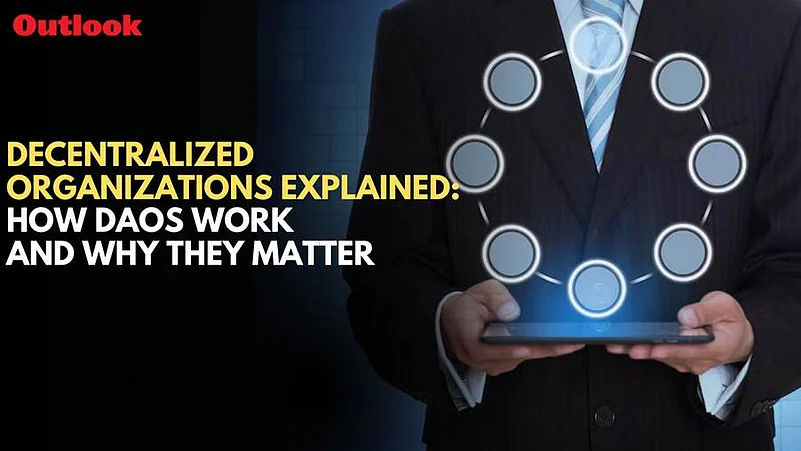In the last few years, there have been some new business and technology concepts that shake up the normal course of business. One such cool new concept is a DAO, or Decentralized Autonomous Organization. If this sounds confusing, don't fret. This article will explain DAOs in simple terms and give you a reason why they're relevant in today's digital age.
What is a DAO?
A DAO stands for Decentralized Autonomous Organization. It is a type of organization without centralized management or a leader. Instead of bosses and managers making decisions, DAOs operate based on code defined as computer programs in the form of smart contracts, most commonly on a blockchain.
In other words, a DAO is an organization where the members all decide together how things should be done. But where in a club individuals would discuss it in meetings, in a DAO everything is put into computer programs that execute themselves automatically.
How Does a DAO Work?
To get an idea of how a DAO works, it is useful to examine its two most important characteristics: decentralization and automation.
Decentralization is when no individual or business firm has control over the organization. Rather, control and decision-making are distributed among the members of the organization. This prevents any one individual from having too much authority.
DAOs are automated through smart contracts. They are computer programs that automatically take actions once a condition is met. For example, when a DAO member votes for a proposal, the smart contract implements the decision automatically without any intervention.
Why Are DAOs Important?
DAOs offer a new way of organizing individuals and resources in an open and democratic style. Below are some of the major reasons DAOs are gaining increasing attention:
Transparency: Since all rules and decisions are input to an open blockchain, everyone can see how the organization functions. This builds trust between members and outsiders.
Global Participation: Anybody with access to the internet can participate in a DAO, regardless of location. This offers a platform for people worldwide to collaborate.
Fewer Expenses: As most processes are executed automatically using smart contracts, DAOs are able to reduce intermediaries and lower operational costs.
Equal Decision-Making: Members generally get voting power based on tokens or shares held, making the process of decision-making democratic.
Examples of Use Cases for DAO
DAOs are used in many varying applications across many different sectors:
Investment Funds: People pool money within a DAO to invest in new start-ups or in cryptocurrencies, and the vote is cast on what to invest in.
Charities: Donations are managed transparently, and votes are cast among members on where the money is to be allocated.
Freelance Communities: Freelancers come together to decide on projects, payments, and workflows in DAOs independent of external businesses.
Open-Source Projects: Businesses use DAOs to manage software projects, deciding updates and finance in a decentralized way.
Challenges and Risks
Just like other new tech, DAOs have some challenges:
Legal Status: The majority of countries do not have specific laws defining DAOs as legitimate entities. This creates uncertainty about contracts, taxes, and liability.
Security Threats: Since DAOs are constructed using computer code, bugs or vulnerabilities in smart contracts can lead to loss of funds or hacker invasions.
Delay in Decision-Making: Group decision-making and voting might be slower than decisions made by an individual leader, especially if many members disagree.
Concentration of Tokens: Sometimes, a few members hold most of the tokens and have more power, which might reduce fairness.
The Future of DAOs
Although there are challenges, most experts view DAOs as the direction in which organizations are headed in a digital world. With improving blockchain technology and more exposure to decentralized systems, DAOs have the potential to transform everything from charities and businesses to social clubs and governments.
For example, there are certain cities and nations experimenting with DAO models to allow citizens the option of directly voting on neighborhood projects. Others are experimenting with DAOs for DeFi applications, where money is owned transparently without banks.
Conclusion
DAOs offer a fresh and groundbreaking way of organizing individuals and decision-making that is mechanized, democratic, and transparent. Although still in their early stages, they have great potential to transform the way we work together in an increasingly interconnected and reliable world. Studying DAOs helps increase our appreciation for the growing application of blockchain technology beyond cryptocurrencies and into broader organizations and societies.














